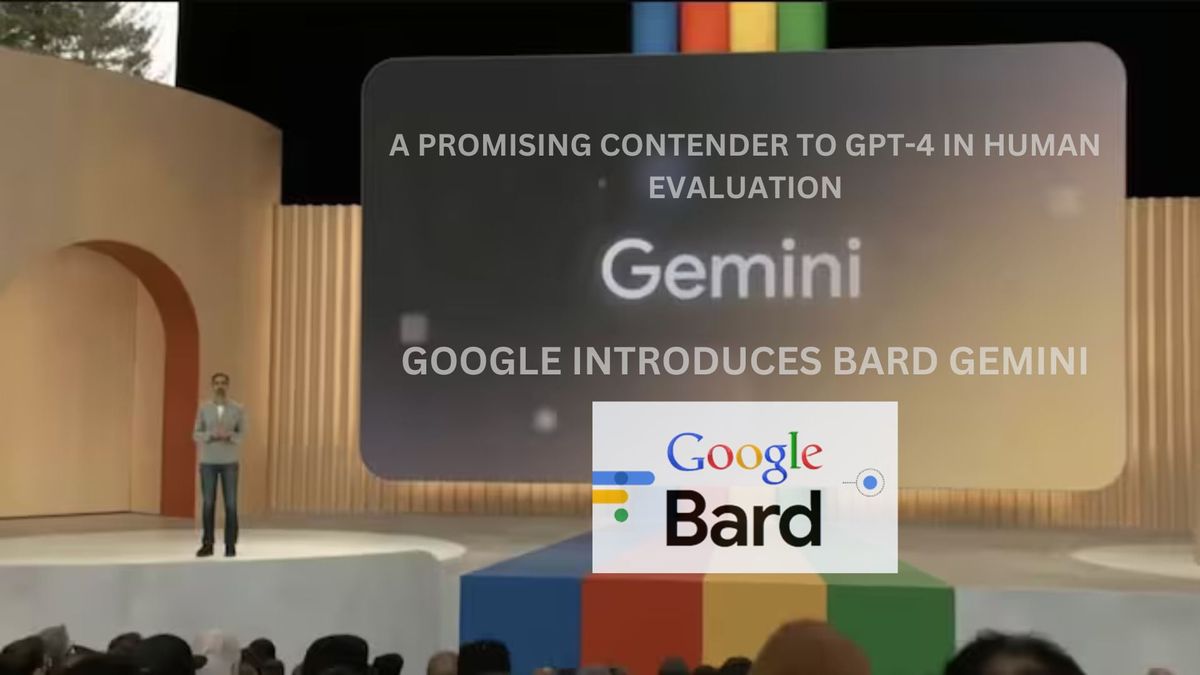Google, the tech giant known for its ground-breaking innovations, has recently unveiled its latest language model, Bard Gemini. This new model has garnered significant attention in the AI community as it is being hailed as a strong competitor to OpenAI’s highly acclaimed GPT-4. With an impressive performance in human evaluation tests, Bard Gemini is poised to revolutionize the field of natural language processing.
Language models have come a long way in recent years, with GPT-3 being hailed as a major breakthrough in AI. However, Google’s Bard Gemini has managed to raise the bar even higher. In a series of rigorous evaluations, it has demonstrated its ability to generate high-quality and contextually relevant text, making it a formidable contender in the realm of AI language models.
One of the key strengths of Bard Gemini lies in its ability to understand and respond to complex queries. It has been trained on a vast amount of diverse data, enabling it to comprehend a wide range of topics and provide accurate and insightful responses. This makes it an invaluable tool for various applications, including virtual assistants, content generation, and customer support.
Google’s commitment to ensuring the ethical use of AI is evident in the development of Bard Gemini. The model has been designed with a strong focus on addressing bias and promoting fairness. By incorporating inclusive training data and implementing robust evaluation mechanisms, Google aims to mitigate potential biases and ensure that the model produces unbiased and reliable results.
The performance of Bard Gemini in human evaluations has been nothing short of impressive. It has demonstrated a remarkable ability to generate coherent and contextually appropriate responses, often indistinguishable from those written by humans. This level of sophistication opens up new possibilities for AI-powered applications, such as automated content creation and translation services.
Moreover, Bard Gemini has shown great potential in enhancing accessibility for individuals with disabilities. Its natural language processing capabilities can be leveraged to develop innovative tools that enable seamless communication and interaction for those with speech and hearing impairments. This represents a significant step forward in creating a more inclusive and accessible digital environment.
While Bard Gemini has garnered significant attention for its performance, it is important to note that it is still in the early stages of development. Google’s research team is continuously working to refine and improve the model, addressing any limitations and challenges that arise along the way. This dedication to ongoing development ensures that Bard Gemini will continue to evolve and deliver even more impressive results in the future.
As the field of AI continues to advance, language models like Bard Gemini play a crucial role in shaping the future of human-computer interaction. With its impressive performance in human evaluations, Bard Gemini has firmly established itself as a promising contender to GPT-4. Its ability to generate high-quality text and understand complex queries opens up new possibilities for AI applications across various domains.
Google’s commitment to ethical AI development and its dedication to addressing bias further solidify Bard Gemini’s position as a reliable and trustworthy language model. As the model continues to evolve, we can expect even greater advancements in natural language processing and a future where human-computer interaction is seamless and intuitive.

1 thought on “Google Introduces Bard Gemini: A Promising Contender to GPT-4 in Human Evaluation”
Comments are closed.